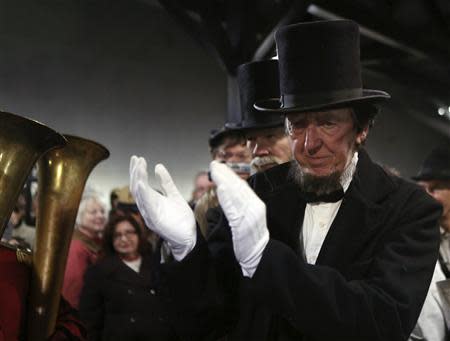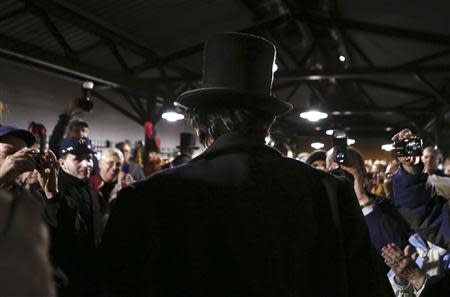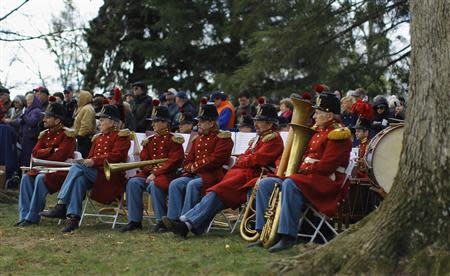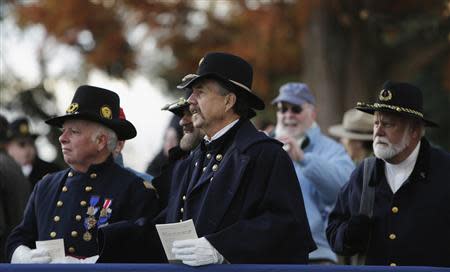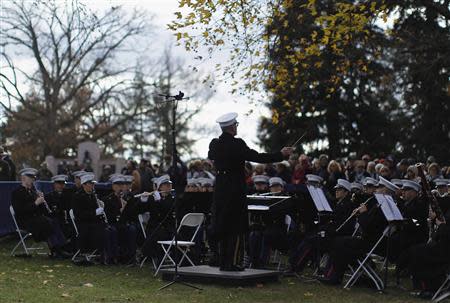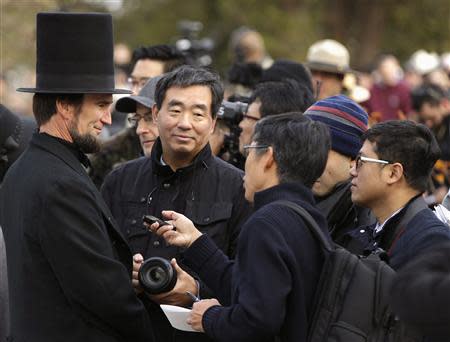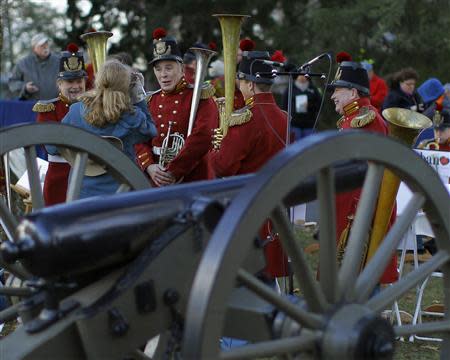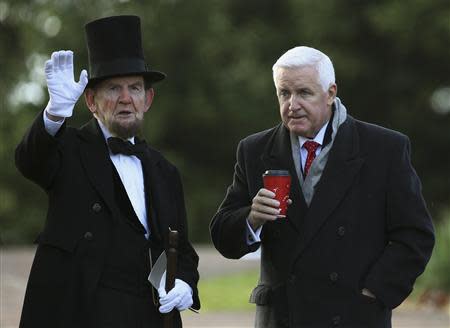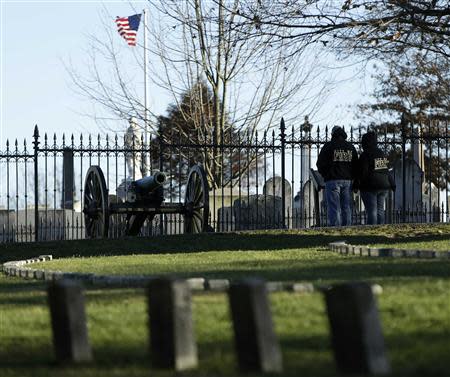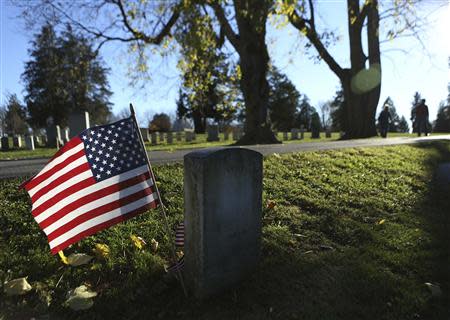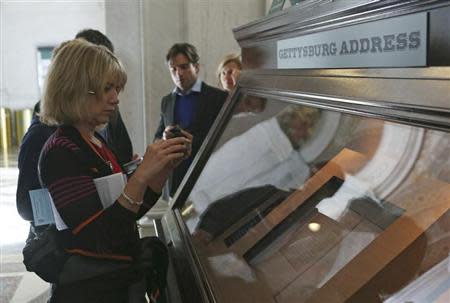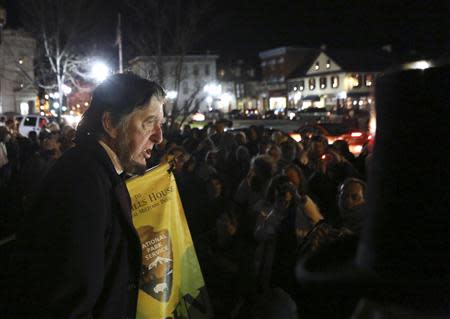Lincoln's Gettysburg Address a powerful second act : author
By Jeffrey B. Roth GETTYSBURG, Pennsylvania (Reuters) - As Americans on Tuesday mark the 150th anniversary of the Gettysburg Address, which remains one of the best-known pieces of political oratory in the nation's history, many will likely overlook one small but important detail. Neither President Abraham Lincoln nor his listeners regarded the 272-word tribute to the soldiers who died at the pivotal battle of the U.S. Civil War, famously beginning "Four score and seven years ago," as the main event on November 19, 1863. Lincoln's remarks were meant to be a second act. The focus of the 15,000 spectators crowded onto what four months earlier had been the site of the Civil War's bloodiest battle was on Massachusetts orator Edward Everett. His 13,607-word speech described the importance of the battle and consecrated the site. Proof of the importance the event's organizers placed on Everett, a former Massachusetts governor and senator, is the fact that they delayed the ceremony by several weeks to ensure he could attend, said Allen Guelzo, a professor of Civil War-era studies at Gettysburg College and author of "Gettysburg: The Last Invasion." Lincoln was formally invited only two weeks before the ceremony. "Lincoln never called it the Gettysburg Address," Guelzo said. "Lincoln ... provided the actual dedication address of the cemetery. (But) Everett did the big oration explaining everything." However, it was Lincoln's two-minute speech, calling for national unity, that stood the test of time. A Lincoln impersonator will deliver the speech at Tuesday's ceremony at the Soldiers' National Cemetery in Gettysburg, after which 16 people will be sworn in as U.S. citizens. That number was chosen because Lincoln was the nation's 16th president. MONTHS OF EFFORT Lincoln spent months preparing the speech, Guelzo said, refuting the popular notion that the president wrote it on the back of an envelope during his train ride to the site. Lincoln had first delivered remarks that followed the Gettysburg pattern on July 7, 1863, days after the battle fought at the site, Guelzo said. "Lincoln made an impromptu speech at the White House that contained the outlines and contours of the Gettysburg Address. He actually starts it: 'How long ago was it, 80-odd years that the founders created this nation,'" Guelzo said. "He had a fully worked out version in hand when he left Washington, D.C." The battlefield was still an open wound when Lincoln arrived. The carcasses of thousands of horses killed during the three-day battle littered the field. Pennsylvania Governor Andrew Curtin had toured the battlefield shortly after the battle, and that tour was a key motivation to dedicate the cemetery. "It is one of the rare moments Lincoln actually leaves Washington during the Civil War," Guelzo said. "He really wanted to do this in a very important way ... part of the draw was Edward Everett, but people are also coming because Lincoln is there." (Editing by Scott Malone and Dan Grebler)
